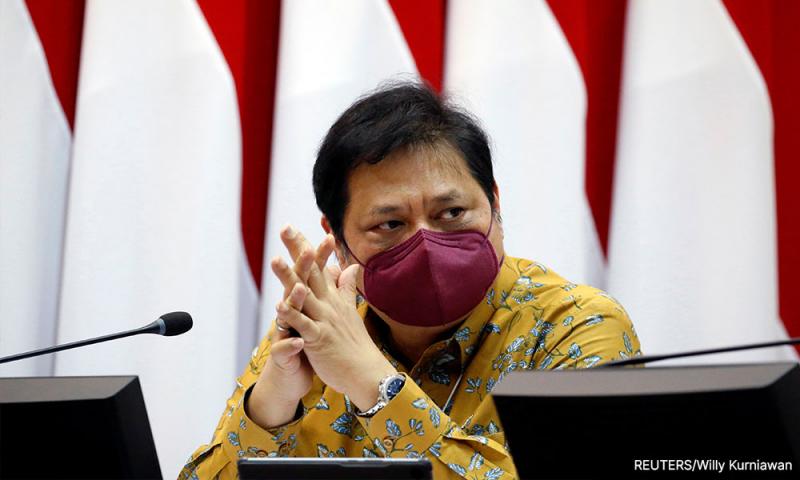Indonesia accuses EU of 'regulatory imperialism' with deforestation law
Indonesia sees the European Union as conducting "regulatory imperialism" with its new deforestation law.
Airlangga Hartarto, Indonesia's chief economic minister, said both sides would still engage in talks on a free trade deal on Thursday.
Nevertheless, it will continue negotiations for a comprehensive economic partnership agreement (CEPA) with the bloc, alongside separate consultations to resolve disputes on the EU's deforestation rules.
He told Reuters that Jakarta wants to close a deal on the FTA after seven years of deliberations.
He, however, stressed Indonesia "can wait another seven years" if the EU was unwilling to recognise existing export standards, like those on sustainable palm oil and wood products, under the deforestation rules.
"We're discussing trade facilitation ... But in parallel, they're building walls. This is not fair," said Airlangga, who raised the issue in Brussels last week with Malaysia's deputy prime minister.
Airlangga cited ongoing disputes with the EU, including its complaint at the World Trade Organization (WTO) over Indonesia's nickel ore export ban and a separate WTO case that Indonesia filed over the EU's phasing out of palm oil as biofuels' feedstock.
The bloc's carbon tax plans could also hit Indonesian nickel products, Airlangga said, describing EU rules as "regulatory imperialism".
A European Commission spokesperson said the EU was aware of the deforestation law concerns and assured the rules would not be discriminatory or used as disguised trade restrictions.
"The CEPA with Indonesia will include a platform for cooperation on shared challenges such as deforestation," the spokesperson said, adding negotiations were scheduled for next month.
Malaysia has said the dispute over the EU law will have no bearing on its stalled EU FTA negotiations.
Big Impact
The law, passed by the European parliament in April, bans EU imports of a range of commodities linked to forest destruction. Indonesia has the world's third-largest area of rainforest.
It is also the world's biggest palm oil exporter and a major global coffee, cocoa, rubber and timber supplier. About 6 billion euro (RM29.84 billion) of its annual exports will be affected by the deforestation law, Airlangga said.
Indonesia argues the law will hurt small palm oil farmers, hampering efforts to reach sustainable development goals, as farmers will struggle to comply with geolocation rules.
It also fears being labelled as a "high risk" country could lead to more costly product inspections.
The government has said the rate of deforestation has declined, but environmentalists say some farmers and companies still clear forests for palm oil cultivation.
Indonesia is also among the world's top 10 carbon emitters, mainly due to forest and peatland clearance.
Separately, Airlangga said Indonesia has also proposed for the US-led Indo-Pacific Economic Framework to include a trade agreement on critical minerals, so companies operating in Indonesia can benefit from US tax credits.
That proposal, which he said had been endorsed by other Southeast Asian countries and Australia, came after Indonesia said it would propose a limited FTA with the US covering battery materials.
- Reuters
RM12.50 / month
- Unlimited access to award-winning journalism
- Comment and share your opinions on all our articles
- Gift interesting stories to your friends
- Tax deductable

 Reuters
Reuters